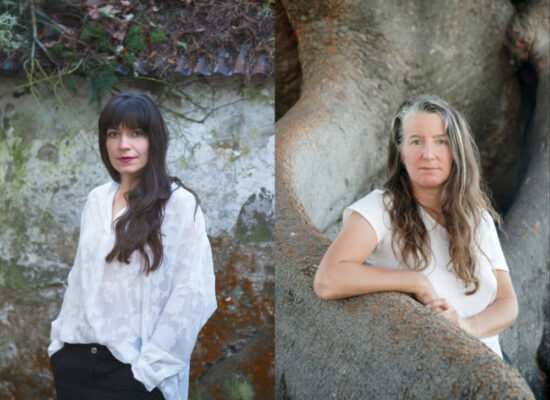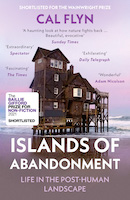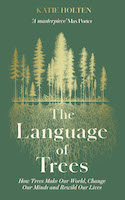Monday 10 July 2023
6:30 pm
Admission: €16

Cal Flyn‘s Islands of Abandonment is a book about abandoned places: ghost towns and exclusion zones, no man’s lands and fortress islands – and what happens when nature is allowed to reclaim its place. In Chernobyl, following the nuclear disaster, only a handful of people returned to their dangerously irradiated homes. On an uninhabited Scottish island, feral cattle live entirely wild. In Detroit, once America’s fourth-largest city, entire streets of houses are falling in on themselves, looters slipping through otherwise silent neighbourhoods. This book explores the extraordinary places where humans no longer live – or survive in tiny, precarious numbers – to give us a possible glimpse of what happens when mankind’s impact on nature is forced to stop. From Tanzanian mountains to the volcanic Caribbean, the forbidden areas of France to the mining regions of Scotland, Cal brings together some of the most desolate, eerie, ravaged and polluted areas in the world – and shows how, against all odds, they offer our best opportunities for environmental recovery. By turns haunted and hopeful, this luminously written world study is pinned together with profound insight and new ecological discoveries that together map an answer to the big questions: what happens after we’re gone, and how far can our damage to nature be undone?
Katie Holten‘s The Language of Trees is an astonishing fusion of ecology, storytelling and art, featuring some of the most exciting nature writers out there, as well as scientists, elders and activists; archaeologists, historians and arborealists. Featuring writings from over fifty contributors, including Ursula K. Le Guin, Robert Macfarlane, Zadie Smith, Radiohead, Elizabeth Kolbert, Amitav Ghosh, Richard Powers, Suzanne Simard, Gaia Vince, Plato, and Robin Wall Kimmerer, this wide-ranging book guides readers on a journey from prehistoric cave paintings and creation myths to the death of a 3,500 year-old cypress tree, from Tree Clocks in Mongolia and forest fragments in the Amazon to the language of fossil poetry, unearthing incredible the hidden secrets of the trees that surround us and acting as an urgent reminder of what could happen if we allow them to slip away.


Cal Flyn is an author and journalist from the Highlands of Scotland. Previously she has been a reporter for both The Sunday Times and The Daily Telegraph, and a contributing...
Read MoreKatie Holten is an artist and activist, born in Ireland and now mainly living in the USA. In 2003, she represented Ireland at the Venice Biennale. She has had solo...
Read MoreRachel Andrews’ essays and criticism have appeared or are forthcoming in outlets including the London Review of Books, n+1, Brick literary journal, the Stinging Fly, Longreads, Gorse, Banshee, the White Review, the Irish Times and the Dublin Review. In 2018, she was...
Read MoreCopyright © 2025 West Cork Music. All rights reserved.
Designed and developed by Matrix Internet